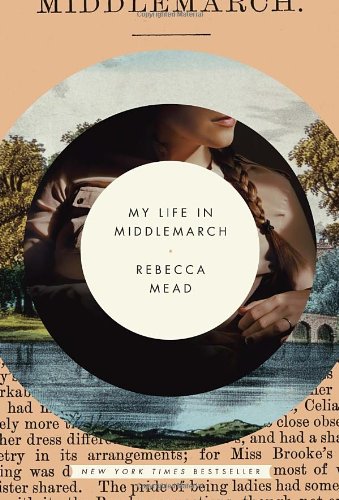
My Life in Middlemarch
A Memoir
کتاب های مرتبط
- اطلاعات
- نقد و بررسی
- دیدگاه کاربران
نقد و بررسی

Starred review from October 7, 2013
In this deeply satisfying hybrid work of literary criticism, biography, and memoir, New Yorker staff writer Mead (One Perfect Day: The Selling of the American Wedding) brings to vivid life the profound engagement that she and all devoted readers experience with a favorite novel over a lifetime. Her love affair with Middlemarch and its author, George Eliot, began when 17-year-old Mead was growing up in southwest England. Here, she wants to “go back to being a reader,” and sets out to rediscover Eliot, visiting the places Eliot lived, studying her letters, and even holding a journal in Eliot’s own handwriting. In Mead’s rendering, Eliot proves a deeply loving partner and devoted stepmother. Mead’s considerable scholarship is accessible and revelatory to anyone who cares about what Eliot calls “the common yearning of womanhood.” Mead, who identifies strongly with aspects of Eliot’s life and that of the characters in Middlemarch, returns to the novel during various stages of her life: as a young Englishwoman finding her way in New York; in relationships with difficult men; as a stepmother and wife; and eventually as the mother of a son. As Mead writes: “There are books that seem to comprehend us just as much as we understand them… books that grow with the reader as the reader grows.” Passionate readers, even those new to Middlemarch, will relish this book. Agent: Kathy Robbins, the Robbins Office.

December 1, 2013
Part literary criticism, part biography, and part memoir, this extremely creative book charts the many ways in which George Eliot's Middlemarch has shaped the life of Mead (One Perfect Day: The Selling of the American Wedding), who came across the novel for the first time when she was a teenager studying for her university entrance examinations during the 1980s. Like Eliot's Dorothea, Mead yearned to escape her provincial surroundings in the southwest of England for the more sophisticated, intellectually satisfying life of the city. The first in her family to attend college, Mead went on to Oxford, studied journalism, and eventually became a staff writer for The New Yorker. Throughout these experiences, Middlemarch remained a constant fixture in her life. Mead returned to the novel again and again, realizing new insights and nuances as she grew and matured. Through this literary journey, she discovers that provincialism is not only a matter of geography but also a state of mind. More memoirist than literary critic, Mead demonstrates through her own story how literature can change and transform lives. For this reason, even the reader who has never heard of George Eliot will find Mead's crisp, exacting prose absorbing and thought-provoking. VERDICT Essential for any literature collection.--Meagan Lacy, Indiana Univ.-Purdue Univ. Indianapolis Libs.
Copyright 2013 Library Journal, LLC Used with permission.

Starred review from December 15, 2013
When Mead first read George Eliot's Middlemarch, a masterwork of sympathetic philosophy, as a young woman in an English seaside town, it became her polestar. A New Yorker staff writer and author of One Perfect Day (2007), Mead now explains why in this heady blend of memoir, biography, and literary criticism. She performs an exhilarating, often surprising close reading of the novel, which Eliot began writing at age 51 in 1870. And she takes a fresh look at Eliot's daringly unconventional life, visiting the writer's homes and casting light not only on the author's off-the-charts intellect but also her valor in forthrightly addressing complex moral issues, cutting sense of humor, large, perceptive generosity, and the deep love she shared with critic and writer George Henry Lewes and his sons. Mead injects just enough of her own life story to take measure of the profound resonance of Eliot's progressive, humanistic viewpoint, recognition of the heroism of ordinary lives, and crucial central theme, a young woman's desire for a substantial, rewarding, meaningful life. Mead's rekindling of appreciation for Eliot and her books blossoms into a celebration of the entire enterprise of writing and reading, of how literature transforms our lives as it guides us toward embracing all that might be gained from opening one's heart wider. (Reprinted with permission of Booklist, copyright 2013, American Library Association.)

























دیدگاه کاربران